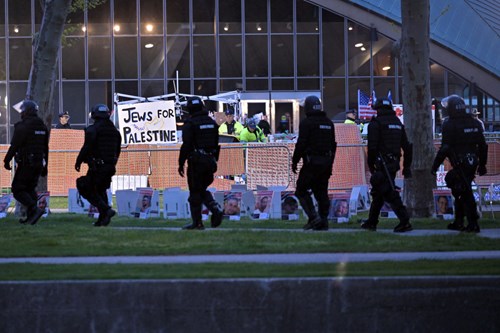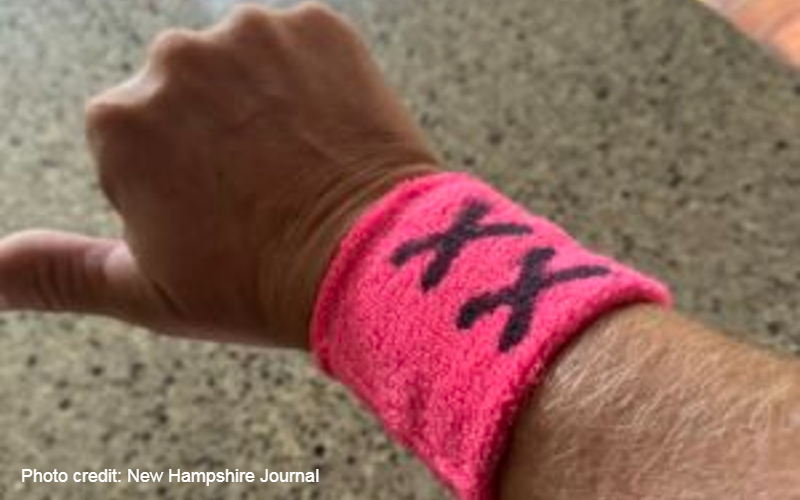Columbia, Yale, Harvard, UC Berkeley, and many more college campuses in the U.S. have seen a rise in  antisemitism since those attacks one year ago. Jews have been threatened, attacked, assaulted, and hurt.
antisemitism since those attacks one year ago. Jews have been threatened, attacked, assaulted, and hurt.
Campus Reform Editor in Chief Dr. Zachary Marschall reflects with AFN on what he’s observed since the attacks.
"I think people need to understand what the anti-Israel students and pro-Hamas students would do if they thought they could get away with anything they wanted to. We reported on a video from last February, so February 2024, of a mob banging down glass doors, and they would have broken through the doors if the police weren't there at UC Berkeley, going after a group of Jewish students who were hosting a Jewish event in a facility on campus."
Those Jewish students had to be evacuated through tunnels underground due to the violence of other Berkeley students.

"I don't think people realize how college campuses are for women especially. There have been multiple Jewish females attacked that we've reported on. One woman at UCLA was knocked unconscious. A student journalist at Yale, who's also Jewish, was stabbed in the eye by a pro-Palestinian protester while she was attempting as a journalist to report on a protest. I believe last year, the student who was I think knocked to the ground outside the Columbia library was also female,” Marschall said.
What could have been
Campus Reform has reported on each of those stories. While security wasn’t necessarily beefed-up to deal with the unrest on these campuses, the minimum level of security likely prevented shocking and devastating outcomes for many Jewish students.
 “So if there's one thing that I think people need to understand from last year it’s how much worse it could have been if there was just, you know, the smallest reduction in security and police presence and deterrence to keep those students, to keep students from acting out on their worst impulses,” Marschall said.
“So if there's one thing that I think people need to understand from last year it’s how much worse it could have been if there was just, you know, the smallest reduction in security and police presence and deterrence to keep those students, to keep students from acting out on their worst impulses,” Marschall said.
A year later there’s heightened awareness for the safety of Jewish students and – in many cases -- examples of action being taken to protect them.
One example is the University of California in Los Angeles where a judge ruled in August that the institution cannot allow an anti-Zionist student group to block Jewish students' access to campus.
Unfortunately, not all campuses are providing an appropriate response to the need for protection.
Falling short at U. of Washington

A Jewish human rights group has filed a complain alleging that the University of Washington has failed to protect Jewish students from threats of physical harm and harassment.
"What started as anti-Israel student protests, including genocidal threats against Jews, was then followed by vandals who covered the entire campus with anti-Semitic graffiti and hateful, intimidating messages that targeted Jews and made clear that Zionists are not welcome on campus,” said attorney Denise Katz-Prober of the Louis D. Brandeis Center for Human Rights.
The complaint asks the Office of Civil Rights to require an internal review of “policies and procedures on nondiscrimination, anti-harassment and ensuring that those polices specifically address and prohibit anti-Zionist harassment and discrimination,” Katz-Prober said.
Katz-Prober wants a task force comprised of Jewish students and faculty devising ways to improve Jewish life at UW.







